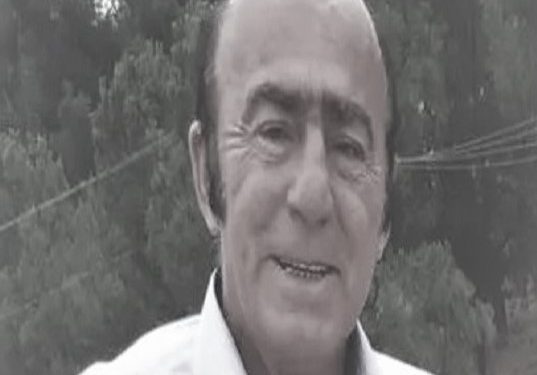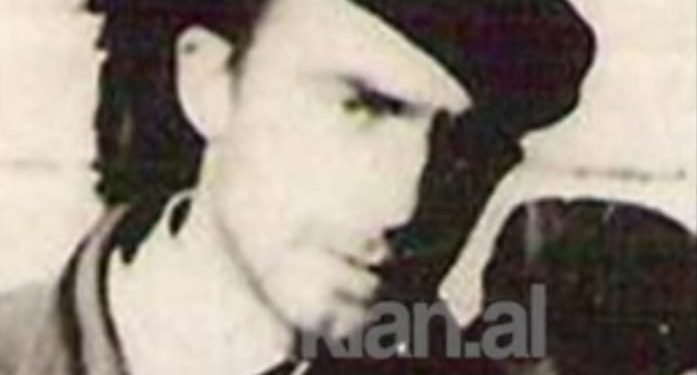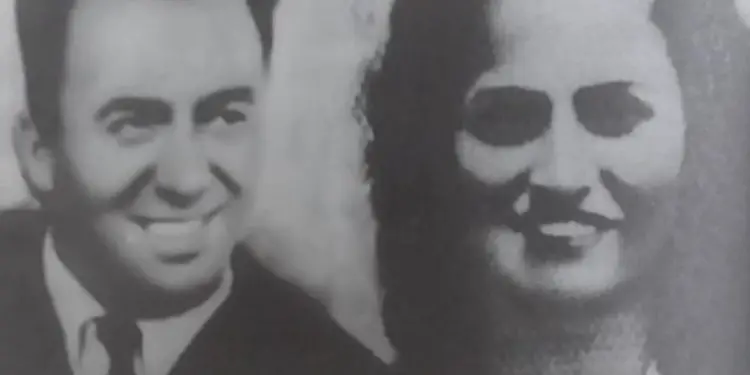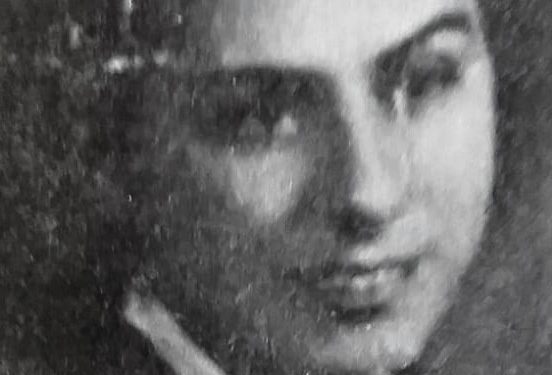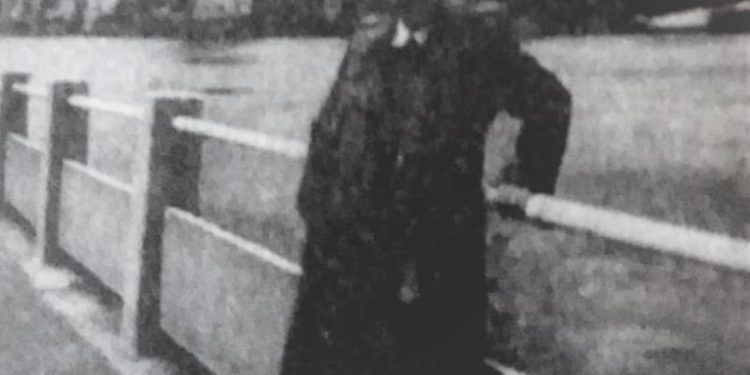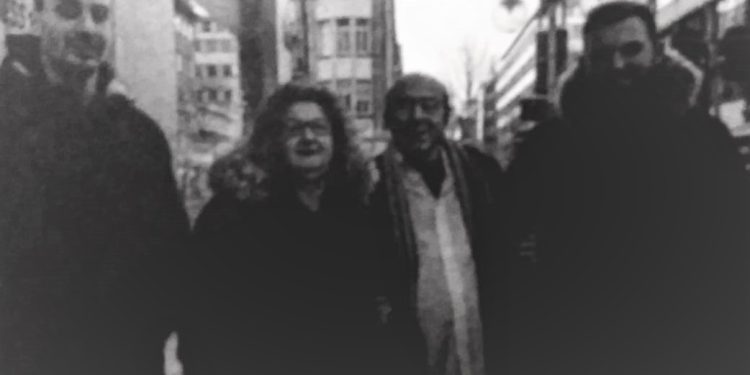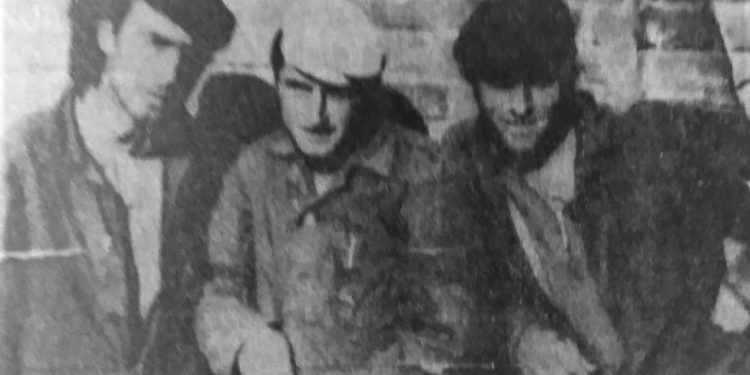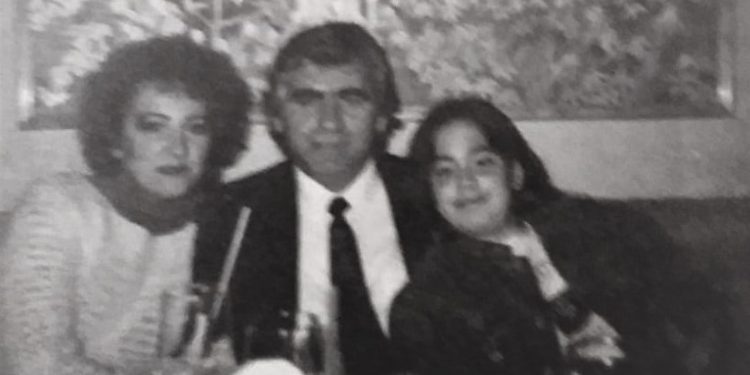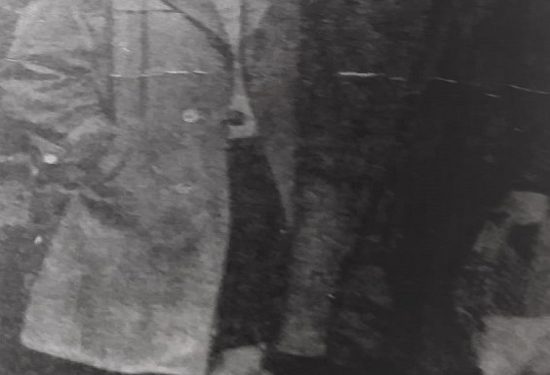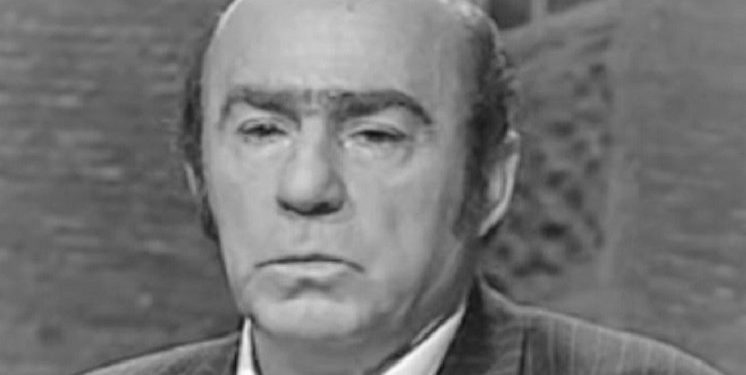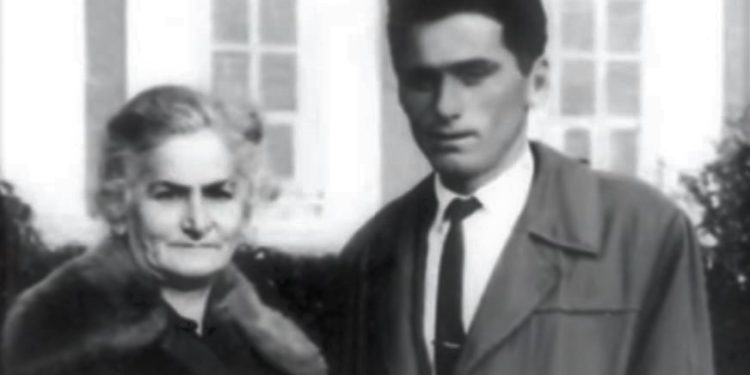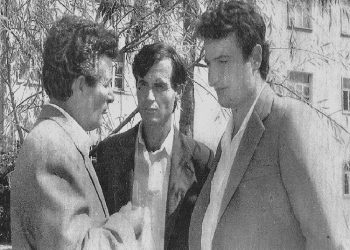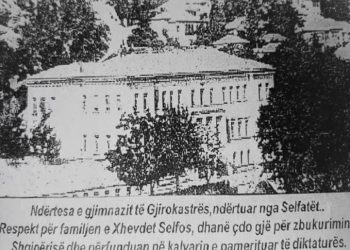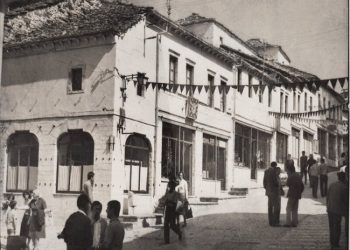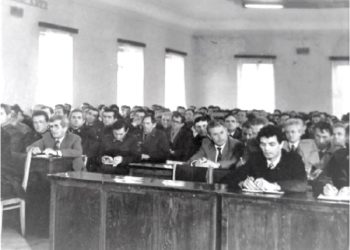By Ylli Tabaku
Second part
Memorie.al publishes the memoirs of the former prisoner and political internee, Ylli Tabaku, originally from Tirana, suckling of one of the rich families of the capital, where his father, Ramazan Tabaku, after giving aid and large financial amounts for Peza’s gang during the period of the National Liberation War, after the end of the War, for his contribution, was appointed as Chairman of the Collection Office and in 1947, was sentenced to life imprisonment in the trial of the “Group of Deputies”, which which had come after a debate he had had with Enver Hoxha at the Hotel “Dajti”, where he had asked him not to seize the assets of those who had helped the War. Ramazan Tabaku’s long ordeal in communist prisons and the brutal persecution of his entire family, from his wife and almost all the sons and daughters of that family, who ended up in prisons and internment camps, until the fall of that regime , or they could escape from Albania. All these are described in the memoirs of Ylli Tabaku, (published in his book “Escape”, published by the Institute for the Study of the Consequences of the Crimes of Communism, with foreword by the scholar and historian Kastriot Dervishi), who suffered for 26 years, 8 months and 24 days in the prisons of the communist regime of Enver Hoxha and managed to leave Albania in 1990, (with the events of July 2 of the embassies), living in Germany, until 2021, which was suddenly separated from life, without first seeing the publication of his book!
Memories of the former prisoner and political internee, Ylli Tabaku, who suffered 26 years, 8 months and 24 days in the prisons of the communist regime of Enver Hoxha
Continued from the previous issue
“MY LIFE BEFORE INTERNATION AND PRISON”
In exile, 1956-1960
After 10 months, we received a telegram from Yugoslavia, which read: “We are fine, Vera and Shabani”. One month after the telegram, a truck came with some police forces who informed us that they were interned for five years, in Savër, Lushnja.
I, at the time, was at school. Two policemen came and searched for me. It was 1956, so I was 14 years old, but as a child, when we saw the police we approached, when I heard my name. The teacher, who happened to be the caretaker teacher, replied: – Surely you are wrong, Ylli Tabaku is one of the most educated and exemplary students, he is not a rogue.
Then the policeman replied: – He is educated but he is an enemy. Wow, I said to myself, I had a status, I was an enemy! But, whose enemy was I?! I did not hear this all my life. The two policemen took me with them, put me in the middle and sent me home. On the way I saw a truck loaded with loot and my family members were sitting on them. I noticed one of my sisters, Drita, who was crying, but as soon as she saw me, she wiped her tears and put her lip in the gas, as if to give me heart and said: -Come on, sister’s soul, that we will again and out. I got in the car which took the direction from Lushnja.
When we arrived in Saver, the mud was up to our knees. We unloaded that handful of leftovers and put us in a very large room that had once been a nursery. Several families had taken refuge there and had made blankets. So did we, we took a corner, hung some ropes and on them blankets. Thus a room type was created. There lived six families, most of them women and children.
In the morning the bells rang and we were obliged to present our presence. First men, then women. A police captain came out and appealed to us, calling the names. We had to just say, “Here.” The two older sisters began construction work. My mother and younger sister were employed in agriculture while I was still in school.
In exile life was very difficult and the economy very weak. The toilets were twenty feet away from the apartment. There was no question of showers. We heated a kettle with water and put it in some doorless cabinets, which we covered with blankets and washed with cans. There were no other additional punishments, but these were enough to darken their lives.
In 1957, three months before we were deported, my two brothers, Hyseni, were arrested and sentenced for having an escape conversation, and Engjëlli, for not denouncing Hyseni. Ceni was sentenced to 15 years in prison and Engjëlli to five years in prison. While our house was full of officers and police who were checking every corner, Ceni, because that was how we called Hyseni, found the case and told me: – Go to the park and meet Shefqet Periu and tell him that Ceni was arrested; he does not believe that he endures torture for more than 15 days. I carried out the message, telling what happened to Çeti, and then he transmitted these words to Seid Çoku, while they did not say anything to Halit Meta, that these three were my brother’s friends.
Then Seidi together with Çeti, took one of their cars and left for Bulqiza, ostensibly for chrome, in fact they left to escape. At the border they fell in an attempt with the border forces. Shefqet was killed on the spot, while Seidi was caught wounded and sentenced to 25 years in prison. Haliti, who was aware of the group, was sentenced to 20 years in prison. After three months, our deportation began. So while we were in exile, both brothers and father were in jail.
Attempted escape, arrest on 10.12.1960 and first sentence of 18 years in prison
In November 1960, when I had just turned 18, I decided to run away. I found a map and through it, I followed the road that led to the border. After traveling one night and one day, after 24 hours of travel, I was ambushed in the villages of Elbasan. Of course, I was in pursuit. When the appeal was made to the camp, I was absent, so they had notified and cordoned off the entire area. I was arrested on 10.12.1960. I was sent by truck to the Lushnja Branch, where the investigation began with the most inhuman tortures. They did not believe that I had taken that journey alone. They thought that someone else should have been with me and for this reason, the investigation continued for another 6 months.
As a result, at the end of 6 months I was taken to court. The trial took place in Lushnje, by the Gjirokastra Military Court, composed of Major Sami Abazi (chairman), Major Dhame Çoli (captain) Naun Çalaku (both assistant judges). The accusation was filed by the Military Prosecution of Vlora, with Major Servet Kadilli. They were senior officers. I was almost like a child, having just turned 18 years old. It seemed to me as if I was watching a movie and I could not believe that I was the one who was being tried and convicted.
With decision no. 18 dated 24.3.1961, based on Article 64/10 of the Criminal Code (treason) I was sentenced to 18 years in prison and 3 years of loss of civil rights, rights I had never enjoyed. Luckily I was not eaten for a year, the older I was, the more I was punished! Decision no. 44 dated 17.6.1961 of the Military College of the High Court,
Serving the first sentence in the years 1960-1979, 18 years, 1 month, 17 days
- In Department no.319, Vlora, years 1961-1962
Initially, I was sent from the dungeons of Lushnja to the Vlora Prison, which was called Ward no. 319. The thing that struck me as soon as I entered those rooms, was a very large room paved with four rows of mattresses in cement. And the strangest thing in my first sight was their dress, rags – rags and all the patches, so that I did not know who had been the first cloth. In those moments I said to myself: – Why did they put all the beggars in prison?
I later learned that the bodies of former officers, deputy ministers, engineers, economists and many “inverted class” intellectuals were hidden under those rails. When they were called for a date, they wore nice, normal clothes and looked like other people.
- In the Department we. 303, Tirana, years 1962-1963
After a few months, I was sent to a labor camp, initially in Tirana, where a meat factory was being built, where my older brother Hyseni was serving his sentence. Some of my friends whom I had known in Vlora Prison, found Ceni and told him, – go more, because your brother has come, – he did not answer, – I asked with my eyes, but he was not. We newcomers stood alone and were not allowed to join others. Then my friends told my brother, – here you have it, the tall one. My brother Ceni, had not thought that for 4 years, I had changed so much, while for me he had not changed. We met, hugged and hugged each other. I asked him about mom, sisters that he had met every 15 days. Living in this camp was not very difficult, because the commander was Hysen Kapllani, there was neither insult nor wood, and he was a man of law, about whom I will talk later.
- In Department ne.303, Vlora, in the years 1963-1964
In 1963, we were transferred to Vlora, where we built the Caustic Soda Factory
- In Department no. 307, Rubik, in the years 1964-1965
At this place, I did not stay long until I was transferred to Rubik, where the Copper Plant was built.
- In Department no. 303, Elbasan, in the years 1965-1966
In 1965, I was transferred to Elbasan, where we worked on the construction of the Cement Factory.
- In Ward no. 323, Fushë – Krujë, in 1966, re-sentence
After a few months, we were sent to Fushë-Krujë, where the same cement factory was built as in Elbasan. It was built by ordinary prisoners, but they joined two camps together, “enemies” and “ordinary”, because they wanted to inaugurate a factory on the occasion of the November holidays. Here not only was the work heavy, but we also worked long hours. The cops behaved like beasts, for the smallest thing, eat iron and wood.
At this time, I was 23 years old and I was thinking about the long years that I was forced to spend in this kind of regime and I was thinking and imagining myself old and ruined and I was saying to myself, – more: how are you going to suffer so many years prison, why do not you try to escape once? From that moment on I thought, how I could escape, where I could not think. I thought of following the example of the two boys from the “Dinamo” Stadium, who escaped by crossing the wires. Here is how they did it: – Every evening in the middle of the yard, the tea pot came out and people ran whoever went first, behind the kettle was a barbed wire fence and nearby an armed bodyguard.
The guard was accustomed to seeing people running towards the tea, and it did not occur to him that two young boys would not stop at the tea kettle, but with a blanket, they would climb the wire fence, and go out, so they did not react at all. After a few days, indeed they were captured, but the escape was successful. I thought of this variant, but I remembered that the camp where I was serving my sentence was in the middle of the field, while he was in the middle of the palaces, so even when the guard remembered what happened, he could not shoot, because it was in the middle of the neighborhood. After thinking for a long time, I thought that the only way to escape here could be by car.
A few months ago I met a young prisoner, who was of Cham origin, but born and raised in Tirana. He had worked as a general in the Truck Park and knew how to drive a car, because when they repaired cars, they tested them for the work they had done, he had fled to Greece. After a short time, he was contacted by two Albanian Security agents, and told: – Return to Albania, they will kill my mother. He only had a mother, because his father had died early and she had raised him an orphan with sacrifices and hardships. He was very frightened by this warning. They had told him: “if you came back yourself, we will not do anything, we will give you a job and you will live in peace”, then Babushi, because that was what they called him, but his name was Maksut Xhomaka, from Margëlliçi i Chameria, returned to Albania.
Upon arrival in Albania, he was sentenced to 20 years in prison. I had many friendships with him, he had told me everything, how he had served three years at the border, how he had escaped and so on. I said to myself, this is the right person for the job.
One day while we were walking in the camp yard, I told him:
-Or Babush how much were you punished?
-20 years, – he told me, – well do you intend to stay so long in prison, that I have found a way to escape.
– Yes like? He asked.
– Let’s find the case and get a car and hit the post-block, – I tell the plan, I continuing:
– After we have left a few kilometers, we leave the car and return towards the camp.
“What does this mean, in the direction of the camp?” He asked me.
-Because they will try to follow us, leaving the camp, – I say – and I will not think of them, that we are approaching again in the direction of the camp, while it gets dark and we know places plenty to shelter in Tirana.
From that moment on, we began to observe the numerous cars entering and leaving the camp. Meanwhile we began to prepare physically, running to the killer mill hall, following each other, with more vigorous running. We took two pickaxes and hit each other as hard as we could, through our arms, back and legs, in a word; we did extreme physical training, because we knew that if they caught us, they would torture us cruelly.
He was not very tall, but very strong, while I was taller, muscular and very strong, 23 years old. After a few days spent doing this tedious exercise was given the much awaited occasion. An almost new Saurrel truck arrived at the prison premises.
The truck was apparently brought to him in order to get a trailer because in the place where he stopped, there were 4 or 5 trailers, brand new and he definitely had to pick up one of them. The driver approached the car next to one of them and got off to tie the trailer, leaving the car running. At this time, we approached to ride. But he turned around and took a hammer from the car and left again, to tie the trailer and at this time, we immediately got in the car.
Babushi, my friend who was already in the driver’s seat, although he gave a lot of gas to the car, could not walk much, as the driver of the truck, managed to open the door and hit him with the hammer in his hand, at the knees. I at this time, reached behind Babushi and gave a push to the driver, pulled the door, while we were heading towards the post-block. The checkpoint was a 20 cm thick pipe and wicker door. The door policeman stood still and waited for the car to check on him, and then let him pass. Babushi asked me: – O Yll, what should I do to this one? – Do not hesitate – I told him – which he looks at the car and will leave on his own, you just go ahead…! Memorie.al




